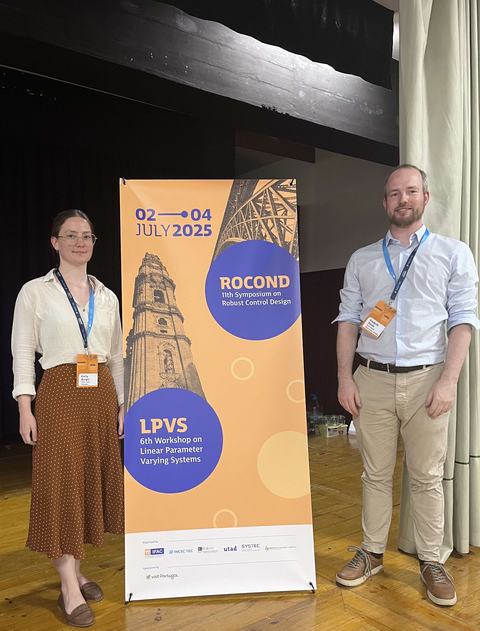Jul 25, 2025
LPVTools 2.0 presented at Rocond'25 / LPVS'25

Teilnahme an Rocond'25/LPVS'25 Konferenz
LPV Tools 2.0
At this years joint 11th IFAC Symposium on Robust Control Design (ROCOND’25) and 6th IFAC Workshop on Linear Parameter Varying Systems (LPVS’25), the chair had the opportunity to present the matlab toolbox: LPVTools 2.0, which is available here as open source github repository. If you would like to use the toolbox please cite the corresponding publication:
"Pfifer, H. and Burgin, E., LPVTools 2.0 and its Application to Spacecraft Attitude Control, 6th IFAC Workshop on Linear Parameter Varying Systems (LPVS'25)"
LPVTools is a matlab toolbox for linear paramter varying systems, which is now maintained by Professor Harald Pfifer and Emily Burgin of the Chair of Flight Mechanics and Control at the TUD, Universitiy of Technology Dresden. The new version is the first major update since the toolboxes's original release ten years ago.
The new release includes functionalities for systems in linear fractional representation, which is often more suitable in cases where models are naturally formulated in this framework, such as spacecraft and industrial manipulators. An additional structured controller synthesis method has been added for both the grid-based and LFT implementations. The toolbox is built using object-oriented programming, making it easy to use. In the accompanying paper, the new capabilities are demonstrated on a satellite attitude control design and compared to the previous features.
Other Contributions of the Chair
Emily Burgin presented her paper "Robust Controller Synthesis Using Data-Driven Quadratic Constraints". This work addresses the challenge that nonlinearities in a system are often difficult to model explicitly and therefore hard to account for in controller design. Instead of relying on accurate models, the proposed approach uses measurement data to capture the effects of these nonlinearities and then synthesize an LPV controller. The method is demonstrated on a spacecraft maneuver involving fuel sloshing, where the iterative synthesis algorithm significantly improved robustness compared to a nominal design. In simulation, the resulting controller nearly eliminated the sloshing-induced oscillations.
With the paper "Finite-Horizon Robustness Analsis under Mixed Disturbances using Signal-IQCs" a novel analysis framework was presented by Frederik Thiele. It uses integral quadratic constraints and a new problem formulation to provides more realistic results when multiple disturbances with known characteristics affect a system. This is applicable to most engineering problems as often disturbances are often well understood. Traditional approaches are not suited, to include this additional knowledge in the analysis. The approach was applied to the path tracking of an unmanned aerial vehicle in an urban environment.
